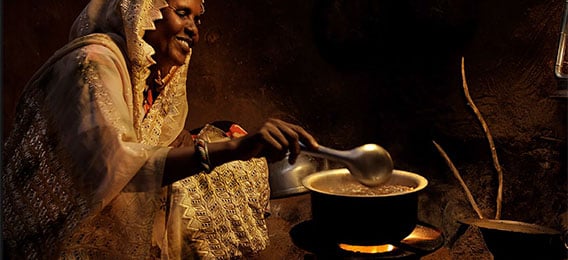Focus: Clean cooking stoves and water filters for Kenya
One of the principal CO2 offsetting projects we supported in 2014 is based in Kenya. Despite being East Africa’s biggest and most advanced economy, Kenya is still a poor country in wide areas: It is estimated that half the population lives in absolute poverty. Two of the biggest challenges involve the burning of wood and biomass, and the lack of access to clean drinking water. By funding improved cooking stoves and chlorine dispensers, the project addresses both these challenges.

Firewood and biomass fuels put immense pressure on natural resources in Kenya (and East African countries in general). In the last 15 years alone, the region has lost over 10% of its forest cover. The project funds high-quality and efficient cooking stoves that can cut demand for firewood by 50%. These stoves are offered to poor families at reduced prices. Not only does this slow down deforestation, it also improves indoor air quality and means women and children need to spend far less time collecting wood. By the end of 2014, more than 128 000 stoves were distributed.
In rural Kenya, over 65% of all people lack access to clean drinking water, which exposes them to diarrhoea, cholera and other water-borne diseases. To improve water treatment, chlorine dispensers are being installed at communal water points such as springs and boreholes. This further reduces the demand for firewood, because families no longer have to sterilise water by boiling it. By the end of 2014, more than 80 000 chlorine dispensers were distributed.
In total, the lower rates of deforestation achieved by the project’s two measures prevent around 20 000 tonnes of CO2 from being released into the atmosphere per year. The revenues generated by these emissions reductions have made it possible to secure investment for subsidising the manufacture and sale of the stoves and chlorine dispensers.